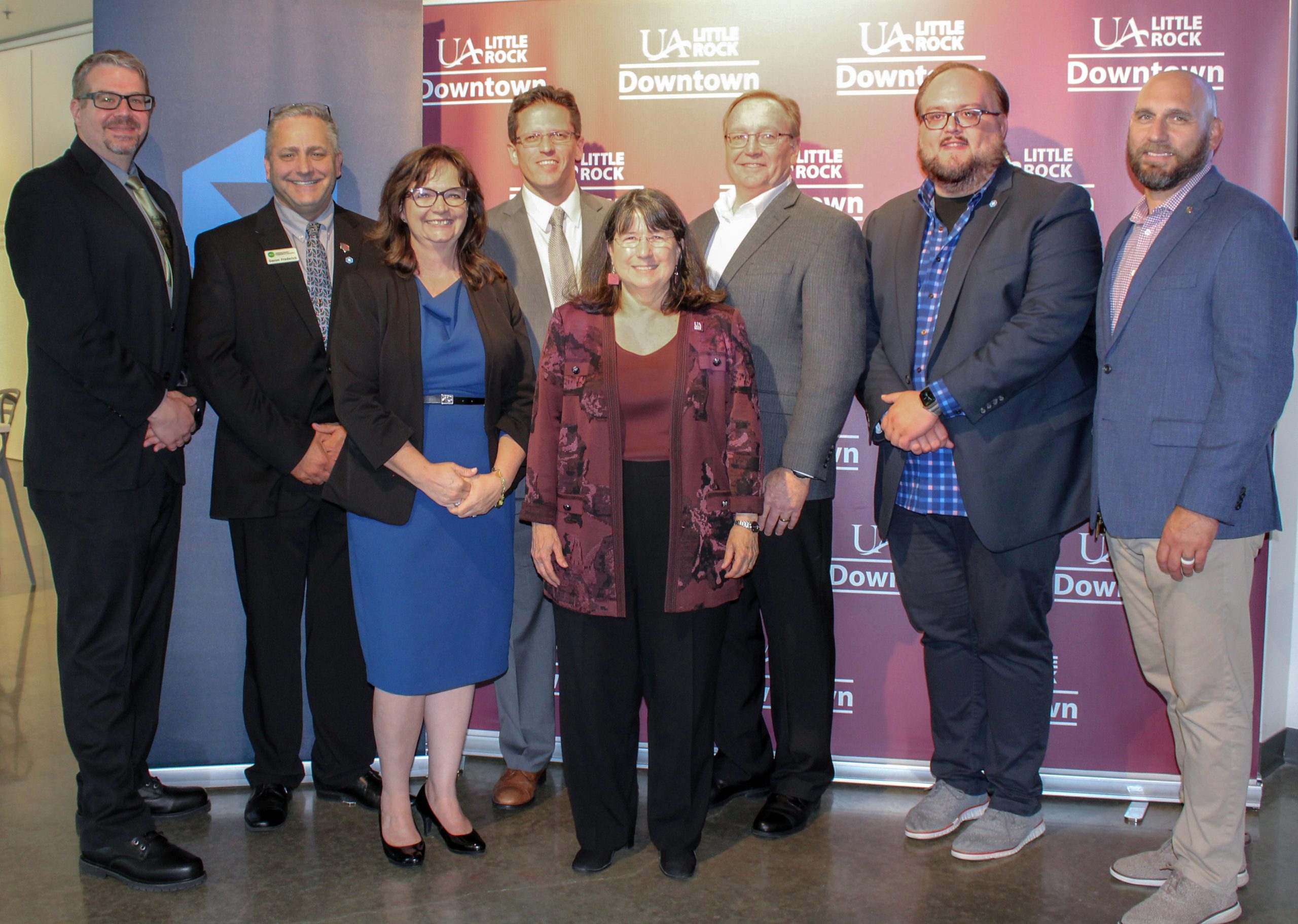UA Little Rock Receives $1 Million Grant to Protect Against Energy-Focused Cyberattacks

The University of Arkansas at Little Rock and its partners announced the expansion of the Emerging Threat Information Sharing and Analysis Center (ET-ISAC) to further strengthen the fight against the escalating threat of cybersecurity attacks in the energy sector.
This new project adds to the already operational Forge Institute Emerging Threat Center and enables purposeful collaboration to expand operational capabilities and enhance regional threat information sharing.
The project brings together electric utilities and partners from the energy sector to advance practices in cybersecurity threat sharing throughout the mid-South region of the country. The center’s goals focus on increasing workforce development, creating education and training for securing energy sector control systems, and advancing cybersecurity threat intelligence sharing practices.
“The energy sector, and electric utilities, in particular, are on the front lines when it comes to nation-state cybersecurity attacks,” said Dr. Philip Huff, assistant professor of cybersecurity at UA Little Rock and principal investigator on the grant. “They are often among the first targeted because they provide critical services to society and are relied on by all other critical infrastructure sectors. It is especially important that we have cybersecurity protections for these services in place.”
The project is supported with a $1 million award from the Department of Energy’s Office of Cyber Security, Energy Security, and Emergency Response (CESER), and is endorsed by Sen. John Boozman.
“The new Emerging Threat Information Sharing and Analysis Center is an exceptional example of the collaboration needed to enhance energy security on a regional level in the United States,” said Puesh Kumar, CESER director. “My office is proud to support this effort to advance workforce development, training, and threat sharing capabilities, all of which are essential to our continued success in the face of ever-evolving cyber threats. I applaud the University of Arkansas Little Rock for involving students in this initiative as it presents a unique learning opportunity and supports the realization of a skilled cybersecurity workforce for the challenges of tomorrow.”
“The Emerging Threat Information Sharing and Analysis Center will be an instrumental part of our national strategy to prevent cybersecurity breaches and attacks that have the potential to disrupt our lives,” Sen. Boozman said. “I’m proud to support initiatives that strengthen the Natural State’s role in combating cyberthreats and prepare and train our workforce to help protect our information and secure our critical networks.”

The center brings together a consortium of universities, cybersecurity experts, electric utilities, and energy sector partners through the Cybersecurity Consortium for Innovation (CCI), led by the Forge Institute. This project provides services for utilities and power system operators throughout the region, including the Electric Cooperatives of Arkansas, Arkansas Public Power Utilities, National Rural Electric Cooperative Association, Entergy, Midwest ISO, and Southwest Power Pool.
“This federal funding and collaboration with the U.S. Department of Energy, and other partners, enables thoughtful engagement, training, and capability development to support the needs of energy sector organizations, including municipally owned utilities,” Forge Institute Chairman and CEO Lee Watson said. “Our goal is to refine and improve a next-generation information sharing and analysis collaboration that will help critical infrastructure entities share information through a trusted community with a clear goal of being one step ahead of our adversaries providing enhanced situational awareness.”
During a May 23 meeting of consortium partners, UA Little Rock Chancellor Christina Drale and Forge Institute signed on to a Memorandum of Understanding with the Idaho National Laboratory, a Department of Energy national laboratory and leading center for power grid cybersecurity resilience and nuclear energy research and development.
This agreement between Idaho National Laboratory and Forge Institute on behalf of CCI will result in collaboration for cybersecurity threat sharing and analysis, industrial cybersecurity labs for training and exercises and training and workforce development. This is the first time such an MOU has been signed between a state consortium and a national laboratory.
“This new center will be a perfect fit for the mission of this university to provide leading-edge experiential learning opportunities that give our students a career advantage,” Drale said. “It also fits well with our applied research mission to use our talent and expertise to address real life issues for everyone’s benefit.”
The center will build a pipeline of student researchers to develop innovations to defend against cyber threats. Ten students from UA Little Rock and the University of Arkansas will work with center members to conduct threat analysis.
Members of the center will develop and deploy energy sector control system simulations for community members to train and test defensive measures to enhance protection against cybersecurity and cyberattacks. UA Little Rock will expand the Cyber Arena, a cloud-based cybersecurity education and training platform, to provide an online learning environment where community members can access these simulations on demand.
Additionally, the center will utilize a near-real-time threat correlation platform with the ability to detect patterns between threat intelligence reports and community member provided information. The platform will automate threat analysis tasks through artificial intelligence. The center will use this information to develop a cyber threat intelligence technology that will allow for broader cybersecurity threat sharing.
